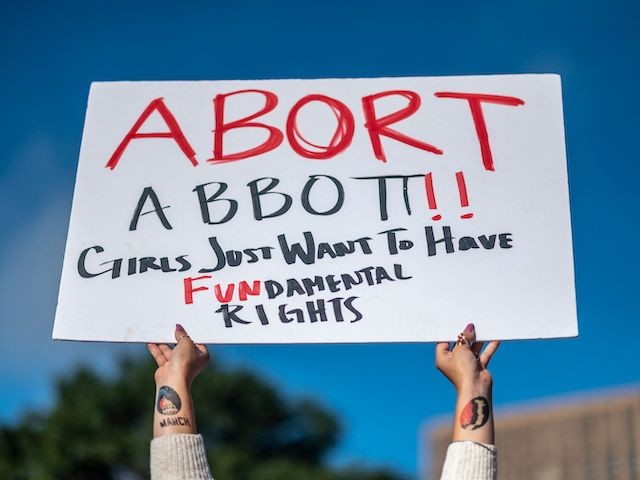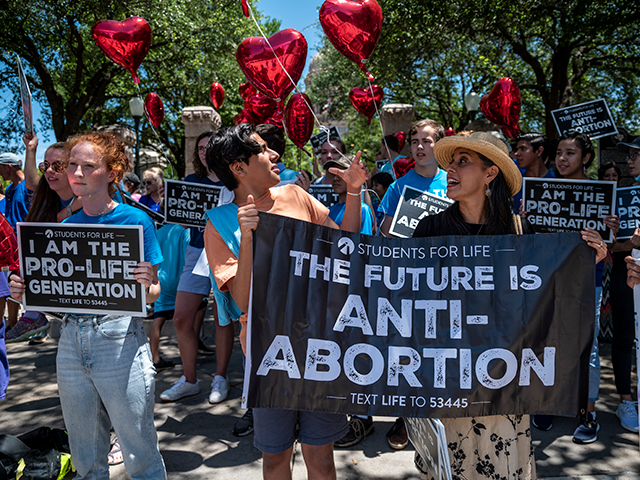A federal appeals court ruled Thursday the Texas Heartbeat Act can remain in effect while litigation continues over whether the law is constitutional.
A three-judge panel of the U.S. Court of Appeals for the Fifth Circuit voted 2-1 to reject the appeal of the Biden Department of Justice to reinstate a lower court’s ruling that had blocked enforcement of the law. Judges Catharina Haynes and James Ho, appointed by Presidents George W. Bush and Donald Trump, respectively, granted the stay of the Obama-appointed judge’s injunction. Judge Carl Stewart, appointed by Bill Clinton, dissented.
U.S. District Court Judge Robert Pitman, an Obama appointee, ordered “that the State of Texas, including its officers, officials, agents, employees, and any other persons or entities acting on its behalf” are temporarily forbidden from enforcing the Texas law.

A woman holds a sign in reference to Texas Governor Greg Abbott as protesters take part in the Women’s March and Rally for Abortion Justice in Austin, Texas, on October 2, 2021. (Sergio Flores/AFP via Getty Images)
The appeals court, however, issued a temporary ruling one week ago to immediately restore the law to full effect. The panel of judges has now evaluated arguments from both sides and allowed the law to remain in effect while litigation proceeds.
Texas became the first state in the nation to enact a “heartbeat” abortion law, which bans abortions once a fetal heartbeat can be detected, generally at about six weeks gestation.
Other states have passed “heartbeat” bills, but once signed into law, activists representing the abortion industry filed lawsuits challenging them.
Subsequently, courts have blocked these laws, ruling they are unconstitutional in light of the Supreme Court’s 1973 ruling in Roe v. Wade and subsequent decisions.

Pro-life protesters stand near the gate of the Texas state capitol at a protest outside the Texas state capitol on May 29, 2021, in Austin, Texas. (Sergio Flores/Getty Images)
The Texas measure, however, contains a unique enforcement mechanism whereby any private citizen may file a civil lawsuit against an abortion provider or any other individual who “aids or abets” a “criminal abortion,” i.e., abortions performed after a fetal heartbeat has been detected.
According to the law, all of these individuals must pay damages to the person who sued them with at least $10,000 for each illegal abortion they perform or assist.
The case is United States v. Texas, No. 21-50949 in the U.S. Court of Appeals for the Fifth Circuit, and No. 1:21-cv-796 in the U.S. District Court for the Western District of Texas.

COMMENTS
Please let us know if you're having issues with commenting.